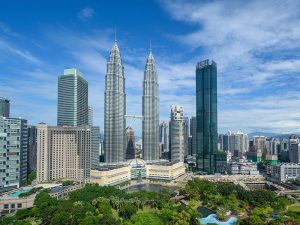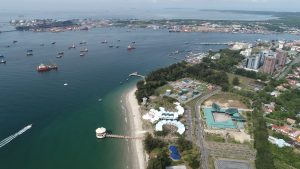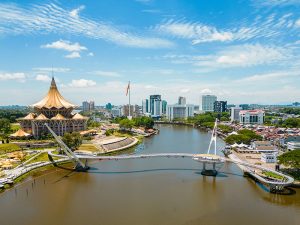Malaysia’s long-stay visa, the MM2H visa, has proven to be immensely popular with foreigners wanting to make Malaysia their second home. So much so that applications started to pile up and some applicants found themselves waiting almost a year for approval. To add to the frustrations, it was officially announced that the financial criteria to qualify for MM2H were to be increased but with no further information available, applicants were left wondering if their applications would be rejected.
I’m pleased to update everyone that MM2H is back in full swing and the approval process is now back on track with an average 6-8 month processing period as per normal. For instance, over the past few months, four of our clients have obtained their MM2H approvals, and that’s in addition to those who obtained their 10-year renewals. Find out more about the latest on MM2H here.
I can’t believe we’ve been advising on MM2H for over a decade. How time flies! At our recent 10th MM2HAA National Workshop on 18 July 2019, the annual get-together of MM2H agents and authorities, we found out that no increases in financial criteria were to be implemented. This “U” turn is classic Malaysia (whether our government or civil servants are any worse than bureaucrats all over the world is another topic for another day … think UK mulling a further referendum on the Brexit referendum or Trump reversing Obama’s policies, to name but a few). The proposed changes have died a quiet, though timely, death with no explanation, and with no confirmation that it has been scrapped permanently. My speculation is that the authorities have either taken cognisance of input from the commercial sector, namely developers, estate agents and other leaders of industry or that the logistics for the change have simply been too overwhelming for implementation. Whatever the reason, this development is great news for the country, and timely too, as the Malaysian economy is in much need of the extra spending by our foreign guests. The only significant announcement that came out of the workshop was that members of the armed forces or police or government security agencies may no longer qualify for MM2H. Whether this applies to those in the reserve forces or those who were previously in the service but have long retired at the point of applying for MM2H remains to be seen.
Malaysia’s long-stay visa benefits Malaysia
The fact that MM2H contributes directly to the Malaysian economy is inarguable. There are many articles out there that cover in-depth the benefits for foreigners living in Malaysia, so I won’t go into that in this article. With over 15 years advising on immigration matters, I’d rather focus on how this long-stay programme has impacted the lives of Malaysians, and mine in particular, from an indirect economic point of view.
The majority of my MM2H clients come with life experience, vast knowledge and expertise in their chosen field of work (the financial threshold required to qualify for relocating to Malaysia under MM2H attracts only quality candidates). Therefore, I want to turn my attention to the less tangible by-products of having experienced, intelligent and successful foreign guests relocating to Malaysia.
Lifelong learning
Lifelong learning is a passion and this brings to mind a memory from my 20s, when one of my friends came on to an older worldly woman, only to be unceremoniously brushed aside with the comment: “In my 50s, I still want to learn. I don’t want to babysit.”
But I digress. Let’s get back to my point about lifelong learning. An MM2H client I am particularly close to is a global investor who has successfully listed companies in various major financial bourses. On a technical level, I’ve picked up heaps from this entrepreneur on the pros and cons of choosing the appropriate stock exchange to list in, especially from a tax and industry-specific point of view. With the correct jurisdiction, the tax savings could be significant, as some jurisdictions permit allowable tax deductions for certain items whilst others do not. Furthermore, it is critical that the jurisdiction be picked for its familiarity with the product or service of the company in order for the best valuation upon listing to be unlocked. Picking a stock exchange that is unfamiliar with the line of business of the company may result in a mediocre valuation.
Another foreign client who I catch up with frequently owns an Internet advisory in Europe that assists clients to access their respective markets. From him, I’ve learnt the importance of SEO, web support and much more. Not only will I now have a mentor to go to when such work comes my way, but he has expressed interest in helping Malaysian companies raise their standards. This has to be good for Malaysia.
Currently, such well-intentioned assistance can only take the guise of shareholding or non-executive board positions in Malaysian companies or limited work hours. Perhaps this is an area our Ministry of Home affairs can examine. As a patriot and a big fan of Penang, it is heart-warming to meet foreigners who show so much interest in Malaysia. I’m especially proud to have come across expats who have relocated to Malaysia from the UK, US, Monaco, etc. These are expats who can live anywhere in the world and have chosen Malaysia not only because of our reasonable standard and cost of living but because they feel ‘at home’ in Malaysia. “Malaysia is a place where I feel at home … where you can be friends with local people rather than just keep within your own clique of expats,” one expat told me.
Staying on the theme of lifelong learning, from a personal investment point of view, I have been able to pick the brains of clients who have been very successful in their chosen field and have invested globally or are themselves financial analysts. I’m an investment geek and an avid follower of Dalio, Buffett, Munger and Robbins, so having access to people who are ahead of the curve has been epic. Rather than reinvent the wheel, it’s such a privilege to hear from my older clients who have blazed the trail. At the same time, it’s been invaluable to be updated with the latest tech innovations from my younger clients. My youngest client is a successful 20-something entrepreneur.
MM2H does attract younger applicants and is no longer simply for retirees. Because of the names given to similar visa programmes such as Portugal’s “Golden Visa” or the UAE’s “Golden Residency Visa”, the perception is that such programmes target solely candidates looking to retire, but the MM2H programme has a category for the under 50 years.

Dialogues with my clients are typically over a nice meal where I gather a few like-minded clients so everyone gets to mingle within my network. Last month I hosted a few of my clients at a talk by a Swiss bank at the St Regis, Kuala Lumpur. The keynote speaker was Deputy Minister Ong Kean Ming of the Ministry of Trade and Industry along with Professor Kishor Mahbubani, former Singapore diplomat and academic. It was my way of thanking my clients for their support and loyalty. My Penang clients had the opportunity to meet my inner circle of friends in Kuala Lumpur and also to get up to speed on Malaysian policies and acquire the geopolitical perspectives of some great regional speakers. Coincidentally, the next day, I was invited by one of my invitees to a talk by another Swiss bank in Kuala Lumpur. Would you believe it? I was pleasantly surprised to see that the keynote speaker on the China-US trade war and its spill-over effects on the global economy was my buddy and MM2H client! He’s a great fan of old-school, family-run ‘kopi tiams’ (simple restaurants serving local dishes that have lasted generations obviously because culinary standards have been kept up) so we made plans the next time he’s in Penang to check one out.
Socialising
Some MM2H clients have become close friends and, apart from catching up for meals, we have become activity partners, going for hikes around the hills of Penang, attending jazz concerts and even doing Enduro rides in the forest fringing the Thai Malaysian border. Not that I’m in need of company. I barely have time, what with the family. Still, MM2H has brought numerous activity partners and friends into our lives. A large majority of my MM2H friends have worked all over the world, mostly in places on my travel bucket list. One was a banker with the World Bank in Kabul, another a doctor with Medecins Sans Frontieres in Congo, and another just travelled from Istanbul to Vladivostok by train. Perhaps the reward here is I get to travel vicariously through these friends.

Accessibility to great medical care
The medical industry has flourished because of foreigners relocating to Penang along with the demands from medical “tourists” from Indonesia and Singapore. I was pleasantly surprised to learn that some Singapore friends schedule their holidays here together with their annual health checks. More specialist practices are being set up because of the ready demand, so locals no longer need to travel for specialist medical care as they did in the past.

Why Malaysian kids have never had education so good
It has never been easier for local children (including our own bunch of three) when looking for a school that is affordable, suits the needs of the kids and is close enough to home. Today they have access to great schools offering a variety of syllabuses. Although I don’t have official figures, a significant number of foreigners or clients I know relocated to Penang primarily for the sake of accessing good education for their children in a safe environment. My guess is that this has contributed to the increased number of schools in Penang, which range from the cosy home-school set-up to the fully-fledged British-style boarding school.
Food
You can’t write an article about life in Penang without talking about food. This Forbes article is a case in point. Not many would dispute Penang’s accolade as the street food capital of the world, but “Western” meals were never a forte. This has changed. Today, it is not difficult to get great pastries, vegetarian meals, acai bowls, lamb tajine or Mandy or a good steak in Penang. Just head to Georgetown’s Chulia Street or the Permai area in Tanjung Bungah. You’ll be spoilt for choice.
My take on this is that because foreigners from advanced countries are more discerning or because of their input and encouragement, Penang restaurateurs have raised their culinary game.
The arts
Other activities where our MM2H friends have graced our lives are the Keeni Kessler Gallery, the Malaysian Singapore Vintage Car Register (well-attended by MM2H expats who bring with them vast experience in historical motoring knowledge), the International Women’s Association, and the Arts Society, which is a global association with a branch in Penang, accepted for registration only recently. Talks on international art and history are held every few months and international speakers come in for these talks. The bar is set very high. I have attended talks by TV personalities such as Lars Tharp and Marc Allum of BBC’s Antiques Road Show.

MM2H has, in my opinion, complemented our lives and has enriched Penang and Malaysia in general by adding variety and depth of activity to our way of living. Apart from the tourism and tech that drives our economy, there are now numerous broad-ranging events taking place at any one time. There’s something for everyone, whether you’re looking for after-work activities or things to do if you’re fully retired. As our economy moves sideways, there’s a glimmer of hope that foreigners show interest in relocating to Malaysia. Ironically, even former Malaysians who gave up Malaysian citizenship are looking to come back to live. For good reason!


